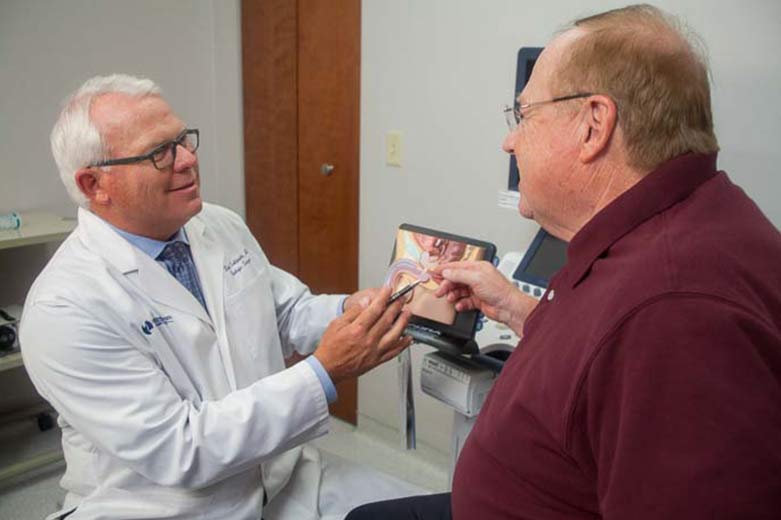Heading to the doctor for a prostate check may not sound like your idea of a good time, but it’s crucial to surviving the second most common cancer for men. One in six men will develop prostate cancer in their lifetime, and it is highly curable if caught in its early stages. Here’s how to know if it’s time to schedule an appointment.
You’re over 40
Since early detection is key to surviving prostate cancer, all men over 40 should schedule a prostate cancer screening to establish a baseline. Prostate abnormalities are very rare for men under the age of 40, but risk increases with age, with most diagnoses occurring over the age of 65. In its early stages, prostate cancer is highly treatable, but it may be asymptomatic, which means that most men do not even know they have it until they get screened.
You have a family history of prostate cancer
If you have a close blood relative who has had prostate cancer (father, son, or brother), you are twice as likely to be diagnosed with it yourself. Some inherited genetic conditions, such as mutations in the BRCA1 and BRCA2 genes, increase the risk of developing prostate and other cancers.
You’re African American
For unknown reasons, African American men are twice as likely to develop prostate cancer than Caucasian men.
You’re Overweight
Men who are obese or overweight are more likely develop prostate cancer.
You’re on a Keto diet or other high protein, high fat diet
Eating red meat and other fatty foods may increase your risk of developing prostate cancer. Check with your doctor if you have concerns about your diet, or to find healthier protein alternatives to red meat for your ketogenic lifestyle.
You’re experiencing any of the common symptoms of prostate cancer
Though many cases of prostate cancer are asymptomatic, some men may experience the following:
Difficult urination
Bloody urine or semen
Pain in the back, hips, or thighs
These symptoms are more pronounced in advanced cases of prostate cancer, so if you are experiencing any of the above, call your doctor immediately.
So you’ve scheduled a screening. Now what?
Prostate cancer is screened in two ways: a PSA blood test, and a physical exam. Here’s what to expect:
PSA Blood Test: Your blood will be drawn and analyzed for the presence of Prostate Specific Antigen (PSA). Men with prostate cancer generally produce higher-than-normal levels of PSA.
Physical Exam: Your doctor will examine your prostate gland by inserted a gloved, lubricated finger into your rectum.
If your PSA levels are elevated, or if your doctor feels abnormalities during the rectal examination, he or she may recommend a biopsy to test for cancerous tissue.
Screening Frequency
Screening frequency varies according to age. Men should be screened at least once in their 40s to establish a baseline, though your doctor may recommend a more frequent screening if you fall into a high-risk category. Men between the ages of 50 and 69 should be screened yearly unless otherwise advised by a doctor. Men above the age of 69 should be screened yearly if they are expected to live more than 10 additional years. Screenings are not recommended for men with less than 10 years of life expectancy.
If you’re uncomfortable with the idea of a screening, you’re not alone. But prostate cancer screenings are key to early detection and survival. Call your doctor to schedule an appointment today. Your doctor can guide you through the steps of the screening and prepare you for what to expect.

